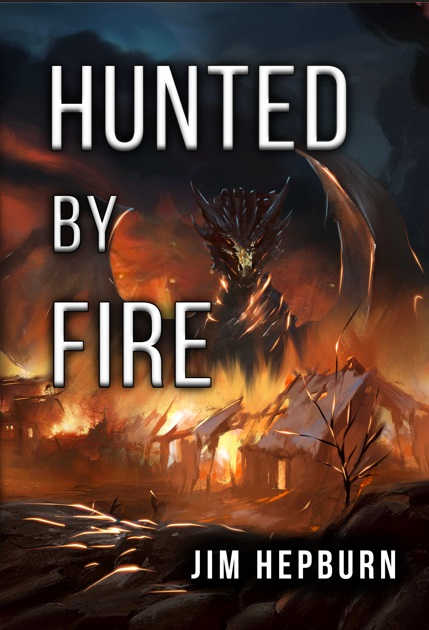Why do some books inspire readers so much?

Think about the last time you read a book you really connected with. Do you remember the feelings it brought up?
by Jim Hepburn
Books inspire their readers. We’ve all experienced this first hand.
Whether we, as readers, traverse a world of sci-fi military grit, adventurous magic, heated romantic encounters, or twisted mystery, if we feel a connection, we’re bound to remember them. For me, with fantasy as my choice genre, Eragon, Percy Jackson, and Matt Cruse fueled my imagination, whereas the feats of Harry Dresden, Kvothe, and Kylar Stern took on new meaning as I aged. I remember them all, so much so that I could tell you about any moment in each of their stories as if I had read them yesterday, even though it’s been years since opening them.
 I bet, for the books you connected with, you could do the same, couldn’t you?
I bet, for the books you connected with, you could do the same, couldn’t you?
The stories we love are inherently memorable. Perhaps there’s an argument that it is because of how well they were written, how the magic of masterful wordsmithing dazzled and bewildered us until we slipped into another world almost without noticing. However, I think most of us would say it’s about how they make us feel. We live the elation of a victory or the sorrow of a loss or the tension of a conflict just by being in the scene, along for the ride with the protagonist. While the feelings are great to experience, though, they don’t seem enough to make a book truly memorable—not on their own. I would suggest there is something else that needs to happen.
Books & Buzz Magazine is where writing pros spill their secrets! Subscribe now for free
It seems plausible that you may recall the plot of or reimagine the scene of a book ten years later not just because a certain chapter elicited feelings in you, but because of how that plot or scene also related to your own life at the time of reading it.
Perhaps we remember stories because the magic of masterful wordsmithing dazzled us until we slipped into another world almost without noticing. However, I think it’s about how they make us feel.
Do we remember Harry Potter’s struggles against Draco Malfoy because the moments in the chapters were particularly emotional on their own, or might it be because we remember very well what it is like to struggle against an unfriendly classmate in school? Do we remember Katniss Everdeen’s anger at the injustice of the Hunger Games because we felt anger on her behalf, or was it really driven home because we remembered a time when we ourselves felt anger over an injustice in our own lives?
Perhaps there are exceptions, but by and large, it would seem reasonable to conclude this could be true. Maybe you’ve also thought on this before and this seems old news, but then riddle me this:
What might a reader do with all those feelings?
Rewind time. You’re a reader, reading one of those amazing books you’ve connected with like few others. What happened in that story? What were you doing in your own life at the time? When you read about the conflicts your memorable character had to wade through and overcome, what did you do with those feelings? Would it be fair to say you were inspired in some way? If you are an author yourself, maybe you took all those feelings and decided to write a book, hoping to reach out and touch the emotions of others in the same way you were touched.
If you’re not an author, though, what other amazing things might you have done with those feelings instead?
It doesn’t seem to stretch the imagination to say that human beings, when inspired, can do grand and unpredictable things. At any age, what ‘insurmountable’ obstacle has been overcome with a little bit of inspiration and the appropriate fictitious role model between a few pages? Thinking back on our own personal histories, we may be able to bring up more than a few examples, but what about others? Perhaps, somewhere, a pre-teen reading a book they connected with can find the drive to stand up to a bully. Perhaps a teenager might find the courage to ask out a date. Perhaps a young adult may find the conviction to pursue a career path they never thought they could accomplish before. Perhaps a working adult may find the energy to break free of depression, or swim the English Channel, or build a starship!
Who’s to say what the limits of inspiration really are? I’ll bet somebody who’s connected with the right book would tell you there aren’t any. Not for what they want to do, not now that their fictitious role model has made it all seem possible.
Jim Hepburn, like many young men in high school cursed with a dash of creativity, found a love for writing, which everybody else thought was practically useless. Those folks urged him to get good at math and science instead, and so he worked at those, but he was never sure if he could hack them out at a university level, and graduated with an arts degree. It’s always been his dream to inspire young men and women to pursue STEM projects.
Jim grew up near Toronto, Canada, and devoured any written adventure he could find, including many of the works written by Kenneth Oppel, D.J. MacHale, Christopher Paolini, and Rick Riordan. Later on, it was Jim Butcher, R.A. Salvatore, Hajime Isayama, and Tsugumi Ohba who fueled him through his early adult years.